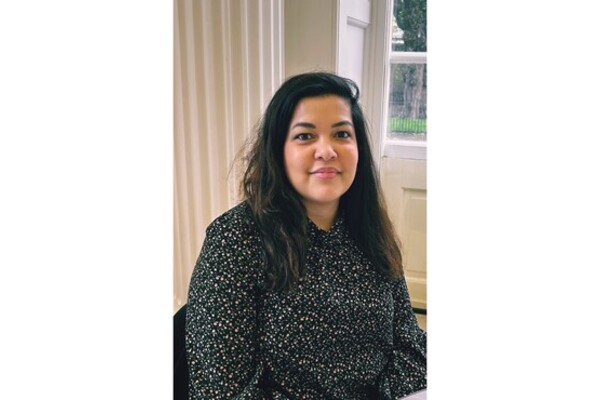Last month we shared an interview with Kev Rayson where he talked about his journey into University Mental Health - his experience, training and the challenges he continues to face in student mental health. Remaining on this theme, we have another member interview to share with you today.
Jo Culpin originally trained as a general nurse before progressing her career into student mental health where she has worked for the past 11 years. Jo has been in her current role at University of Southampton, for the last 6 years.
Can you outline your career and how you got to where you are today?
I originally trained and qualified as a nurse and worked as a general nurse for 3-4 years. Then I switched to do my social work training. I worked as a social worker for about 15 years in mental health and with adults with physical disabilities.
I got into student support through a conversation with someone who worked at the university. They were looking for people to asses students for the DSA and because I had a background in nursing and social work, I started to do some freelance work for the university on an ad-hoc basis. Then a job became available in the first support team. This was in the main student services team across all faculties. We found one of the biggest group of students we worked most with, was medical students. So I got to know the medical faculty quite well. Then in 2014 I was offered a job providing support purely for the medical students. I work 4 days a week and my role is to provide support to third, forth and final year medical students.
How does your experience and training help you to do your job well?
Quite a lot of what I do is risk assessment and we hold quite a lot of emotional responsibility. So I think my background in social work has really helped me in managing risk. But also accepting that risk is always there. I tend to probably not to panic too much. The experience I’ve had over 20 odd years, has allowed me to be fairly competent in assessing risk. I think being a nurse as well helps me really understand the challenges the students face on the wards, it’s really helpful I think. I really understand fitness to practise as well having clinical experience. My role is purely support, but I’m not part of that assessment process which really helps the students, because I’m not there to judge. I am their advocate, I am there just for them.
Can you briefly explain your day-to-day responsibilities?
There are various meetings I attend throughout the term. I attend the final year exam boards. This time of year we also have a special considerations board so there is quite a lot of structure to my week in term. In terms of the student appointments, that can really vary and I never quite know what I’m coming in to. My week might start with my diary quite empty, but then on a Monday morning I will be booking appointments for the rest of the week. I have a lot of students I might only have contact with once or twice, and a small group of students who I meet with on a weekly basis. Quite a lot of my job is also signposting. We have got a really good central support team that offers counselling, a lot of tips around anxiety, so if they want to I will sign post students there too. We have some new members of the team so I have weekly meetings with them. We have a personal academic tutor scheme so quite often they come to us if they are worried about their duties for support. Part of my role is offering training and talking about mental health to some of the staff in the faculty. Majority of my work is a bit unpredictable. Not quite knowing what I'm coming in to and being able to prioritise. We are not an emergency service, but we do respond pretty quickly. I have been known, if we’re really worried about a student, to go and knock on their door.
The university also has a university wide mental health steering group and I sit on that board and feed into that. At the moment the University of Southampton are working towards the Student Minds Mental Health Charter so I’m quite involved in that at a central level.
What’s helped you to stay in your role?
The students! I really enjoy working with young people. I really enjoy it. For me it’s about knowing you’ve made a difference - When I get emails or cards from final year students when they say ‘If it hadn’t have been for you Jo I wouldn’t have graduated’. Or contact me a year later to let me know how their foundation post has gone. To me that’s what makes the job for me. I feel very strongly that the minute you get fed up with a job like this is the time to go. I also have a great boss. I love this role. I am very autonomous, I manage my workload and I am trusted. For me it is the students and the staff definitely. The university is also a nice environment, it’s quite vibrant and I have to remind myself actually the the majority of students are happy! It’s only a small minority of students I work with.
What part has UMHAN played in this?
This role can be quite isolating. I am the only tutor who’s role is purely support no teaching. UMHAN for me is really helpful in feeling more connected and good for training as well with the discussion forum. Online and virtual training has also been really good. For me aswell, I keep up my social work registration so for CPD it’s been great, really helpful. Also, to continue being a member of UMHAN you need to have supervision so it’s a really good way for me to argue my case for needing supervision to my boss.
What’s your favourite part of your role?
One to one work. The other really nice part is the work we do with MedSoc which is a student committee. So I work with students who don’t necessarily need my support. It’s a nice way for me to remember that the majority of students are happy.
What has changed in student mental health since you started your role?
One of the things I’m finding is that student’s expectations of us is very high over the last 3-4 years. There’s only so much we can do as a university. Even parents are contacting us questioning what we’re doing. Like when students find out where they’re going to be placed and come to me and say ‘this placement is going to affect my mental health, what are you going to do about it?’ Sometimes it’s about changing that round a little bit and saying ‘what are you going to do about it?’
Some students demand almost instant answers. And I think the other challenge is funding. We have to really fight to get people replaced. I think the other challenge, maybe just in medicine, is that people see our role very much as people just come to us for tea and chats. The really big challenge for me is getting some of the clinicians to understand exactly what we do and the responsibility we hold and the risk that we hold. After we had our third suicide in the faculty I went to the Dean and said 'I know you can’t do anything, but I want you to know this is happening'.
Also the severity of some of the mental health I’m seeing. We’ve had three student suicides and as often is the case, they were people that weren’t necessarily on our radar. We have students who are trying to kill themselves one day but don’t understand why we’re telling them they can’t go back on the ward the next day. It’s almost like they can’t distinguish between the illness and the course. They’ll say ‘I was just having a bad day when I was standing over the bridge on the M27.’ Actually no, we need to work with this. That’s quite a big challenge actually.
What do you think are the biggest remaining challenges?
Covid… Let’s get through Covid that’s a really big challenge right now!
I think funding, I think awareness. Just thinking about the area I work in, a lot of medics don’t want people to know they’ve seen me. I think for me it’s just getting the awareness out there. A lot of what I say to students is that we see it as a really positive thing that you’ve come forward for support. We worry much more about students when they don’t tell us what’s going on.
We’ve got to be so much more honest, and have more honest conversations. I see students who come to me and say they hear about other students being quite awful about people with mental health difficulties and it staggers me.
The biggest challenge still, is this stigma attached to mental health.
Thank you for taking the time to share your story with us Jo. As always, If any members would like to pose any questions to Jo, please head over to the community forum where you can feel free to continue the conversation.









